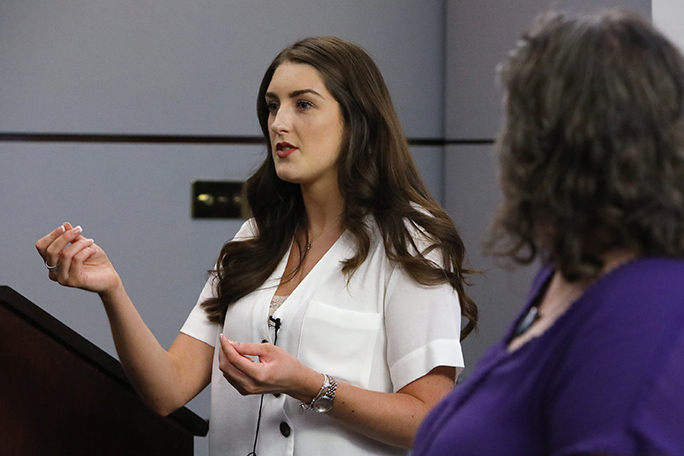What were your main reasons for choosing to undertake postgraduate research at the University of Liverpool?
The chance to be involved in an exciting PhD project that has current, real world applications and could potentially make a difference in healthcare.
Can you summarise your postgraduate research in a few sentences?
Molecular Radiotherapy (MRT) is a cancer treatment technique that involves a radioactive isotope being injected or ingested by a patient. This radioactive isotope accumulates in an organ of interest and delivers a high radiation dose to tumour tissue, minimising the dose to surrounding healthy tissue. Currently, MRT treatment plans are undesirably generic as the amount of radiation administered is fixed for a certain cancer treatment procedures.
However, the effectiveness of the treatment varies from patient-to-patient as the progressive nature of the disease impacts each individual differently. Therefore, the aim of the project is to develop a novel camera system that can image the body and accurately quantify the radiation dose the patient has received.
This will allow subsequent administrations of the radioactive isotope to be adjusted accordingly. To do this, we are using Cadmium Zinc Telluride (CZT) as the detector material as this overcomes some of the limitations of imaging high energy, high activity isotopes suffered by current clinical imaging systems. The system initially aims to improve the effectiveness of MRT cancer treatment specifically to the thyroid and in turn will hopefully improve quality of life and reduce costs to the NHS.
What support have you recieved from the Liverpool Doctoral College?
I received a placement bursary from the Liverpool Doctoral College to partially fund an industrial placement at eV Products in Pennsylvania, USA, in January 2016.
How do you believe postgraduate research will help your career prospects?
I have learnt a wide breadth of skills, built a wider knowledge of the field I am interested in, and grown my professional network by engaging with people from different industries, which will hopefully allow quicker career progression than if I hadn’t done a PhD.
